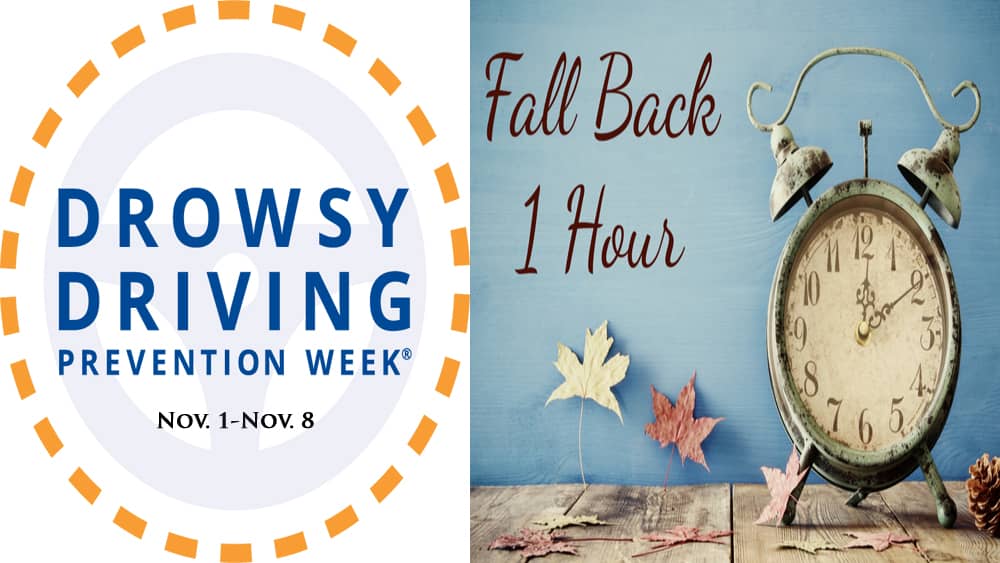
At 2 a.m. Sunday, we’ll turn our clocks back one hour as daylight saving time ends for much of the country. The date also marks the beginning of this year’s Drowsy Driving Prevention Week.
According to the National Safety Council, the time change can affect sleep, for those working from home and those traveling to work.
The National Sleep Foundation is excited for this year’s Drowsy Driving Prevention Week occurring November 1-8. The campaign will raise awareness and education about the dangers of drowsy driving and its prevention. You can find NSF’s drowsy driving prevention resources on www.thensf.org.
The National Sleep Foundation holds Drowsy Driving Prevention Week (DDPW) each year the week following the end of Daylight Saving Time.
NSF’s annual campaign goal is to reduce the number of drivers who elect to drive while sleep deprived. Drowsy driving is responsible for more than 6,400 U.S. deaths annually. Fall asleep crashes are often caused by voluntarily not getting the sleep you need. NSF encourages everyone to prioritize sleep and drive when alert and refreshed.
NSF encourages everyone to spread the word on Drowsy Driving Prevention Week through social media using hashtag #Sleepfirst.






